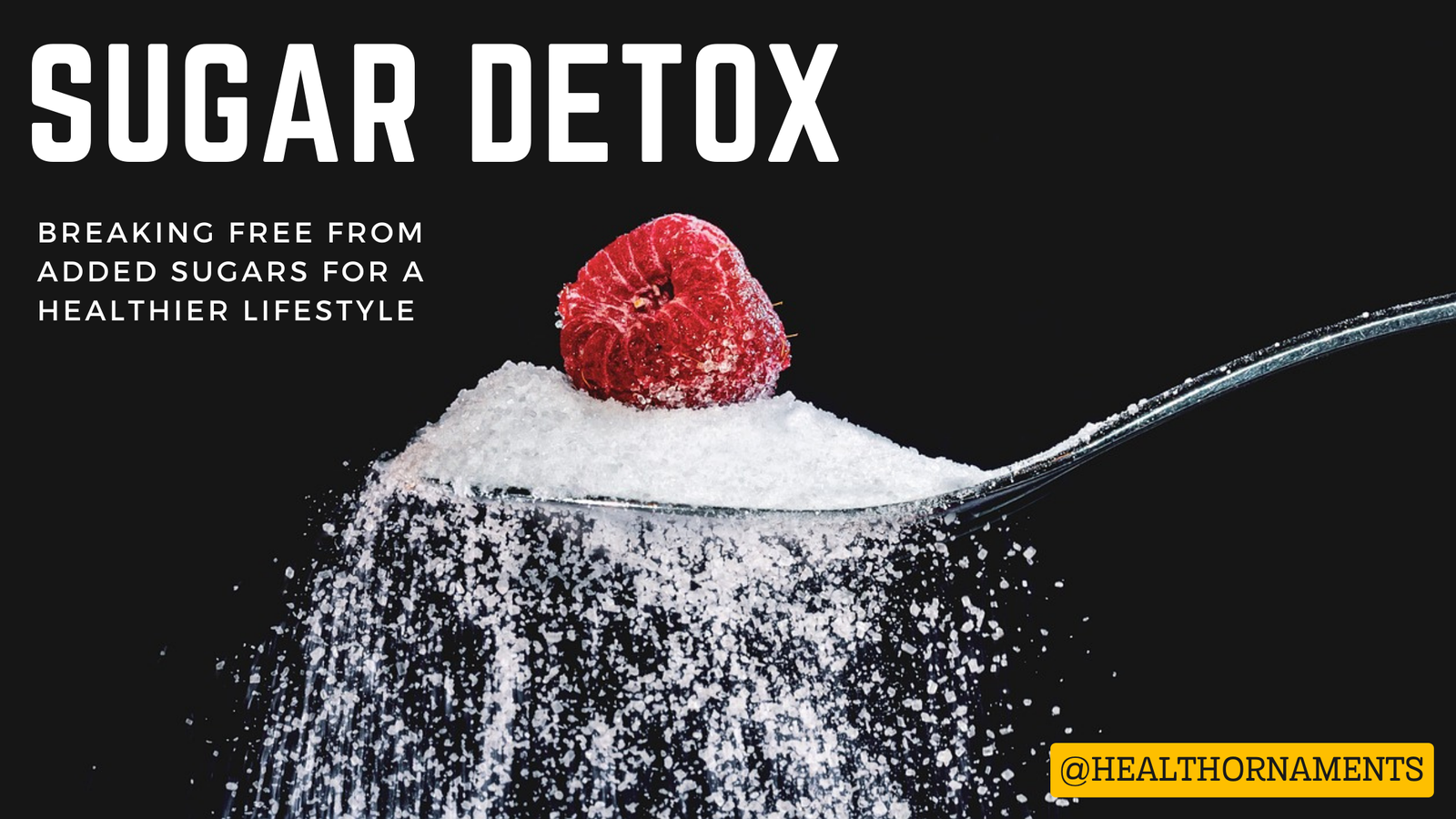Table of Contents :-
ToggleSugar Detox: Breaking Free from Added Sugars for a Healthier Lifestyle:
In the modern food landscape, the pervasive and insidious nature of added sugars has woven itself into the fabric of our diets, creating what can only be described as the “sugar trap.” This trap is not just a metaphorical snare; it’s a tangible and detrimental aspect of our daily lives.

Understanding the Trap:
Added sugars, often lurking under deceptive names like sucrose, high fructose corn syrup, or agave nectar, are omnipresent in processed foods. From seemingly innocent cereals to savoury sauces, sugars infiltrate our meals, quietly contributing to a myriad of health issues. The trap is set not just in sugary desserts but in the unexpected corners of our grocery carts.
Read More: Mindful Eating: The Art of Enjoying Food and Enhancing Your Well-Being
Hidden Calories and Health Consequences:
One of the primary elements of the sugar trap is its role in excessive caloric intake. These hidden sugars add an abundance of empty calories, leading to weight gain and, consequently, an increased risk of obesity. The trap tightens further as excess sugar consumption becomes a precursor to insulin resistance, diabetes, and cardiovascular diseases.
The Dopamine Rollercoaster:
Beyond the physical consequences, the sugar trap extends its tendrils into our neurological realm. Consuming sugar triggers the release of dopamine, the brain’s pleasure hormone, creating a cycle of cravings and indulgence. This constant seeking of the next sugar fix becomes a challenging habit to break, intensifying the trap.

Impact on Energy Levels:
Contrary to the temporary surge in energy that follows a sugar-laden snack, the subsequent crash leaves us feeling fatigued and lethargic. The sugar trap, therefore, becomes a cycle of energy highs and lows, contributing to a perpetual need for external stimulants.
Breaking Free:
Recognizing the sugar trap is the crucial first step towards liberation. Understanding the hidden sources of added sugars empowers individuals to make informed choices. The journey to break free from the sugar trap is not just a physical detox but a psychological shift, reclaiming control over our health and well-being. As we venture further into this exploration, the path to a healthier, sugar-free lifestyle becomes clearer, and the promise of lasting change beckons.
Escaping the Vicious Cycle:
The sugar trap extends its influence beyond the physical and mental realms, infiltrating our daily routines and impacting our overall quality of life. The constant consumption of added sugars contributes to a vicious cycle of cravings, overindulgence, and subsequent guilt. Breaking free from this cycle requires a conscious effort to understand the emotional ties we have formed with sugary treats and dismantling the habits that perpetuate the trap.

Influence on Mental Well-being:
As the sugar trap tightens, it doesn’t just affect our physical health but also casts shadows on our mental well-being. Studies suggest a correlation between high sugar intake and an increased risk of anxiety and depression. Unravelling the intricacies of this relationship is essential in comprehending the full extent of the trap’s impact.
Social and Cultural Entanglements:
The sugar trap is not solely an individual struggle; it’s embedded in the fabric of our social and cultural norms. From celebratory cakes to office treats, sugary delights are woven into the communal aspects of our lives. Navigating social situations becomes a challenge as the trap attempts to dictate our choices in the midst of societal expectations and traditions.
Read More: Gut Health: Why Gut Health Matters and How to Improve Your Digestive System
Economic Factors:
The affordability and accessibility of sugary, processed foods contribute to the widespread prevalence of the sugar trap, especially in economically disadvantaged communities. Breaking free requires not only personal dedication but also systemic changes that make healthier options more accessible to all.
Educational Barriers:
Understanding the nuances of the sugar trap can be hindered by a lack of nutritional education. Many individuals may be unaware of the detrimental effects of added sugars or may struggle to decipher complex food labels. Bridging the gap in nutritional knowledge becomes a crucial aspect of dismantling the sugar trap on a broader scale.

Environmental Impact:
Beyond personal health, the sugar trap has far-reaching consequences on the environment. The production and processing of sugarcane contribute to deforestation, water pollution, and soil degradation. Breaking free from the sugar trap aligns not only with personal well-being but also with a sustainable and eco-conscious lifestyle.
In the upcoming sections, we will delve deeper into the intricacies of the sugar trap, exploring not only how it manifests in our lives but also the strategies and insights needed to break free and embark on a transformative journey toward a healthier, sugar-free lifestyle.

